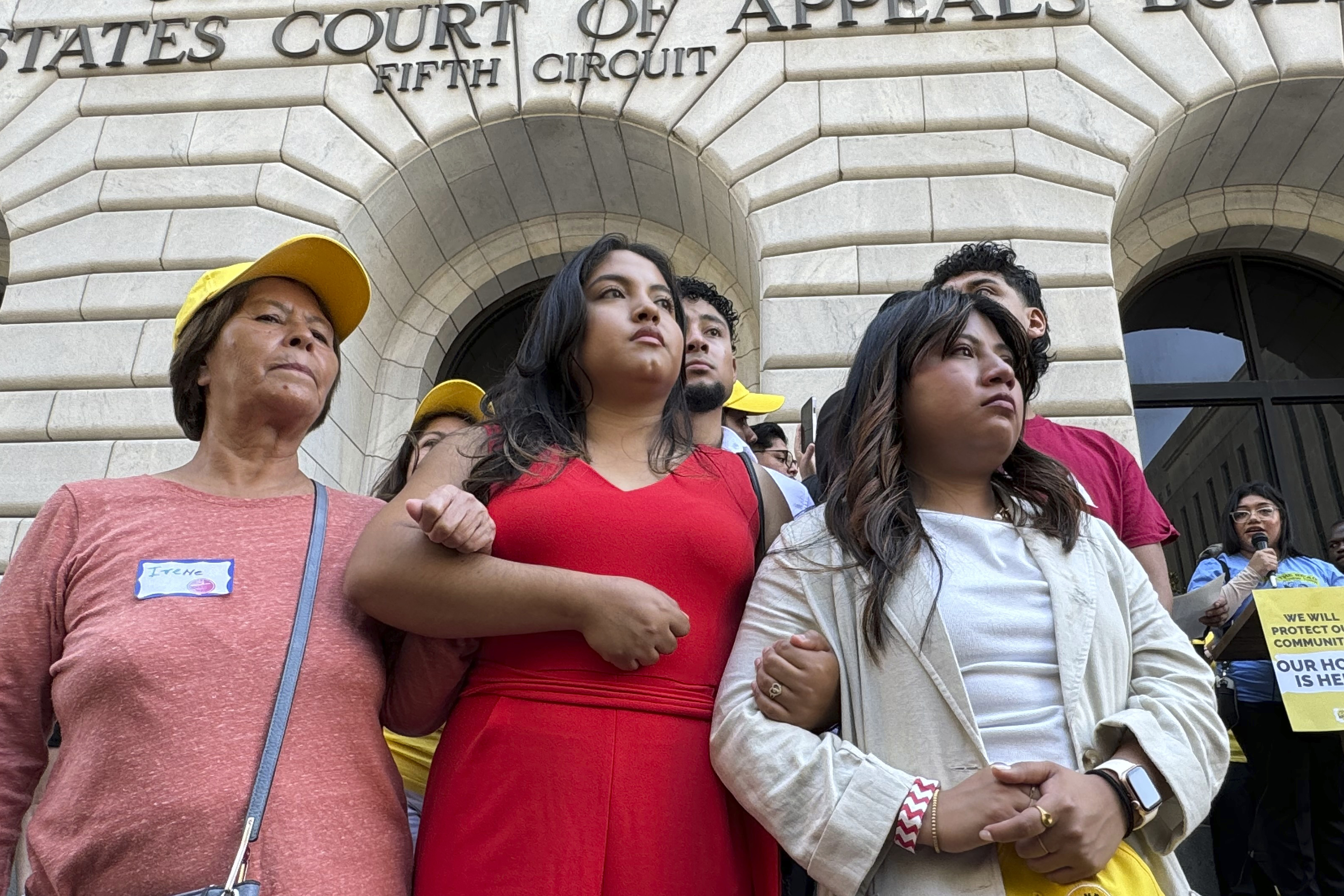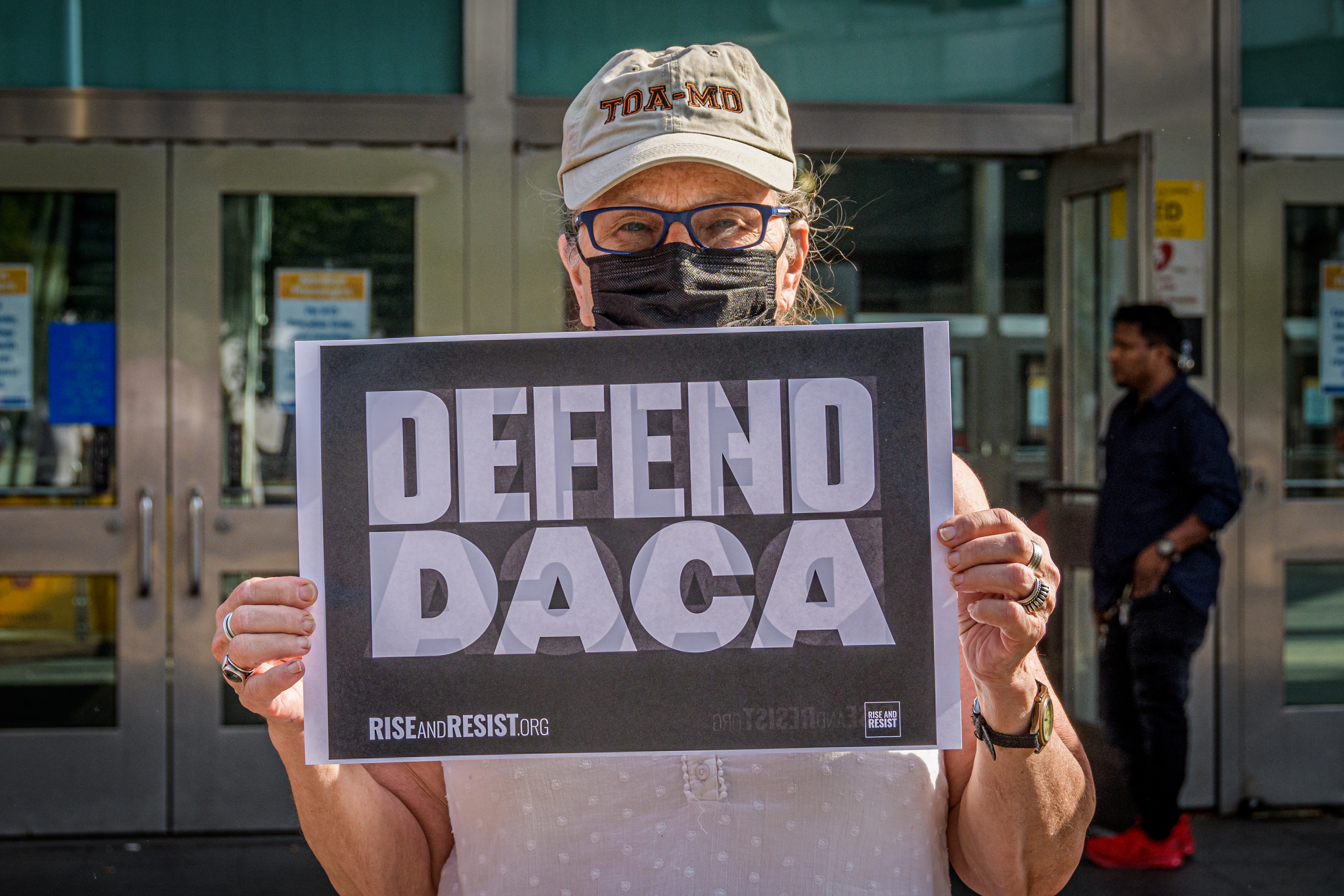
Reyna Montoya was 10 when she and her family fled violence in Tijuana and illegally immigrated to the U.S. Growing up in Arizona, she worried even a minor traffic violation could lead to her deportation.
She didn't feel relief until 11 years later in 2012, when she received a letter confirming she had been accepted to a new program for immigrants who came to the country illegally as children.
“All of the sudden, all these possibilities opened up,” Montoya said, fighting back tears. The Obama-era Deferred Action for Childhood Arrivals program granted her and hundreds of thousands of others two-year, renewable permits to live and work in the U.S. legally.
But as President-elect Donald Trump prepares to return to the White House, after an unsuccessful bid to end DACA in his first term, the roughly 535,000 current recipients are bracing yet again for a whirlwind of uncertainty. Meanwhile, a years-long challenge to DACA could ultimately render it illegal, leaving people like Montoya without a shield from deportation.
We've got the news you need to know to start your day. Sign up for the First & 4Most morning newsletter — delivered to your inbox daily. >Sign up here.
“I have to take his (Trump's) words very seriously, that when they say ‘mass deportation,’ it also includes people like me,” said Montoya, who runs Aliento, an Arizona-based advocacy organization for immigrant rights.
Uncertainty is nothing new for DACA recipients. As many matured from school age to adulthood, they have witnessed a barrage of legal threats to the program.
DACA hasn't accepted new applicants since 2021, when a federal judge deemed it illegal and ordered that new applications not be processed, though current recipients could still renew their permits. The Biden administration appealed the ruling, and the case is currently pending.
For those who secured and renewed DACA permits, the benefits have been life-changing. With DACA, Montoya for the first time was able to work legally, get health and dental care, and obtain a driver's license.
Many recipients had hoped Vice President Kamala Harris would win the presidency and continue fighting for them. But the reelection of Trump, who has repeatedly accused immigrants of fueling violent crime and “poisoning the blood” of the United States, has heightened their fears that DACA could end and they could face deportation.
Out of caution, some are rushing to renew their permits, according to the Coalition for Humane Immigrant Rights, which has been providing free legal aid to help them through the extensive process.
Others are preparing for potential family separations. Phoenix native and DACA recipient Pedro Gonzalez-Aboyte said he and his immigrant parents, along with his two U.S.-born brothers, recently discussed the possibility of being split.
Gonzalez-Aboyte recalled his parents, who immigrated from Mexico, saying that even if they were unable to stay in the country, "as long as the three of you are here and you're OK, then that's what we want."
“That was a very real conversation we had,” Gonzalez-Aboyte said.
Officials for the Trump transition team did not respond to emailed requests for comment.
While it is unclear how Trump could impact DACA this time, he has suggested scaling back other programs that offer temporary protection for immigrants and is staffing his incoming administration with immigration hardliners, including Stephen Miller and Thomas Homan.
During his first term, Trump tried to rescind DACA. But in 2020, the U.S. Supreme Court concluded his administration ended the program improperly, though it didn't rule on the program's legality.
But DACA's fate won’t be immediately left up to Trump, if at all.
A three-judge panel on the 5th U.S. Circuit Court of Appeals — regarded as the country's most conservative appeals court — heard arguments in October concerning the legality of DACA. The case, initially filed by Texas and other Republican-led states in 2018, now focuses on a Biden administration rule intended to preserve and fortify DACA.
Attorneys for DACA opponents argued that immigrants in the country illegally are a financial burden on states. Meanwhile, the Biden administration, along with intervenors, contend that Texas has not shown the costs it cites are traceable to the policy and, therefore, lacks standing.
The panel doesn’t have a deadline to issue a ruling. Regardless, its ruling will likely be appealed, potentially elevating the case to the U.S. Supreme Court.
Stephen Yale-Loehr, a professor of immigration law practice at Cornell University, said the most likely scenario is the panel affirming that DACA is illegal and that the case goes before the Supreme Court. He doesn't anticipate Trump immediately trying to end DACA but didn't rule out the possibility.
“I don't know that they could actually terminate the program any faster than the current ligation is going,” he said. “They could still do it, but they've got an awful lot of immigration policy matters on their plate.”
Yale-Loehr said the Biden administration is limited in how it could help DACA recipients at this stage, but it could enable recipients to renew their permits early and process them as quickly as possible.
Greisa Martinez Rosas is a DACA recipient and executive director of United We Dream, a youth-led advocacy network for immigrants that boasts more than a million members nationwide. She said the immigrant rights movement has grown so much since Trump’s first term, and it’s been preparing for this moment for years, “building a nimble and responsive infrastructure so that we will make shifts as threats emerge.”
She said they’re calling on Americans to offer immigrants sanctuary, preparing to ensure people's physical and psychological safety in case of mass deportations, planning demonstrations and asking for help from the current administration.
“We still have a couple of months for the Biden administration to use every single tool at its disposal to protect and defend as many people as possible,” Martinez Rosas said at a recent press briefing. “We’re expecting for them to do that now more than ever.”
___
Gabriel Sandoval is a corps member for the Associated Press/Report for America Statehouse News Initiative. Report for America is a nonprofit national service program that places journalists in local newsrooms to report on undercovered issues.




